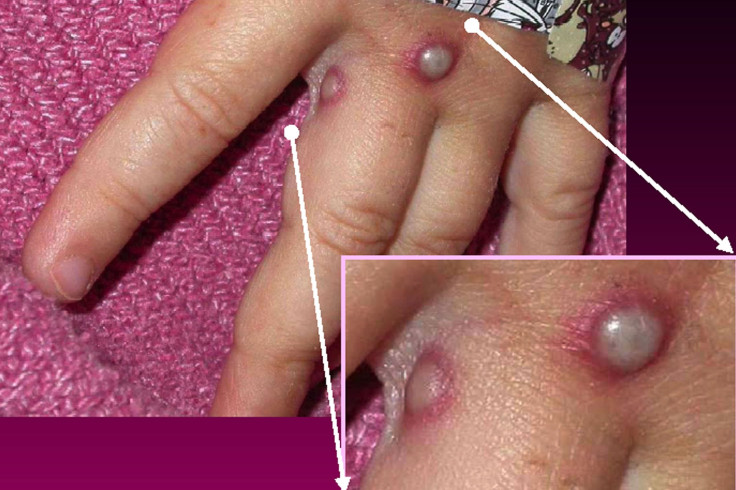4 More Monkeypox Cases Detected In UK, Brings Total To 7
KEY POINTS
- The four additional monkeypox cases are reportedly not linked to the earlier cases
- The patients have no link to travel to a country where monkeypox is endemic
- "Where and how" the patients got infected is already under urgent investigation
Authorities in the U.K. have detected four more cases of monkeypox in addition to the ones announced earlier in the month. This brings the total of currently confirmed monkeypox cases in the country to seven.
The U.K. Health Security Agency (UKHSA) announced that it has detected four additional monkeypox cases, three of which are in London, while one is a "linked case" in the northeast of England. The cases don't have "known connections" to the two confirmed cases on May 14 and the one case announced on May 7, the agency noted.
Investigations are already underway as authorities work to determine "where and how" the four new patients, as well as the May 14 patients, got infected. In the May 7 case, for instance, the patient had a record of recent travel from Nigeria, where the individual is believed to have gotten the infection. As the U.S. Centers for Disease Control and Prevention (CDC) explained, monkeypox cases in people outside of Africa are often linked to international travel or through imported animals.
In the case of the four new patients, however, none of the patients have a link to traveling to a country where monkeypox is endemic. UKHSA further noted that they "appear to have been infected in London."
"Due to the recent increase in cases and uncertainties around where some of these individuals acquired their infection, we are working closely with NHS partners to identify if there may have been more cases in recent weeks, as well as international partners to understand if similar rises have been seen in other countries," UKHSA noted.
UKHSA has detected four new cases of monkeypox – three in London and one in the North East of England 🧵Thread:
— UK Health Security Agency (@UKHSA) May 16, 2022
These cases do not have known connections to the previous confirmed cases announced on May 7 and May 14. Read more: https://t.co/e8jksQo9Av
That said, the agency stressed that the virus doesn't spread easily between people, noting that the "risk to the U.K. population is low."
"While investigations remain ongoing to determine the source of infection, it is important to emphasize it does not spread easily between people and requires close personal contact with an infected symptomatic person," Dr. Colin Brown, UKHSA director of Clinical and Emerging Infections, said in the news release. "The overall risk to the general public remains very low."
However, since the four new cases were in people who self-identify as gay, bisexual, or other men who have sex with men (MSM), those in these groups are being advised to be on the lookout for symptoms such as lesions or rashes in their bodies, particularly in the genitalia.
"This is rare and unusual. UKHSA is rapidly investigating the source of these infections because the evidence suggests that there may be transmission of the monkeypox virus in the community, spread by close contact," Dr. Susan Hopkins, UKHSA chief medical adviser, said in the news release.
"We are particularly urging men who are gay and bisexual to be aware of any unusual rashes or lesions and to contact a sexual health service without delay," Hopkins added.
Early symptoms of monkeypox may include headache, fever, muscle aches, swollen lymph nodes, backache and exhaustion, UKHSA noted. A rash can then develop, often starting from the face and then spreading to the rest of the body. The incubation period is typically seven to 14 days but may range anywhere from five to 21 days, according to the CDC.
Those who have concerns that they may be infected with monkeypox are being advised to contact health services but to call the clinic before their visit.
"We can assure them their call or discussion will be treated sensitively and confidentially," UKHSA said.

© Copyright IBTimes 2024. All rights reserved.






















